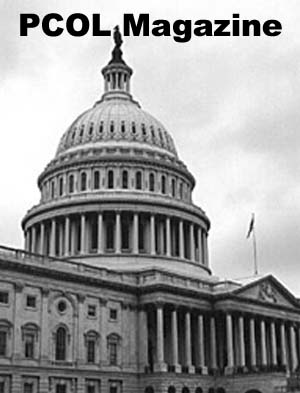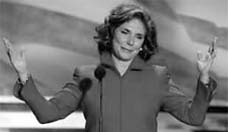
Journalists Cannot Be Used As Spies - the use of journalists, clergy and Peace Corps workers as spies is banned by federal law
Journalists Cannot Be Used As Spies
It long has been debated whether the second-oldest profession is journalism or espionage, and the two do have many purposes in common: to gather great heaps of information, often in hostile environments or from antagonistic sources; to synthesize the key elements of the data; to present the information to an audience that relies on it in making critical decisions.
But there the similarities end. Journalists file their reports for anybody in the world willing to part with the price of their product, while spies practice their art solely in service of their presidents and potentates.
Journalists are held to high standards of professional conduct; only in the movies can a reporter build a reputation on stealing documents from the mayor's desk, seducing a secretary for the inside corporate dope or pouring whiskey down a nosy building superintendent who keeps his eye to the keyhole. Contrast that to the world of espionage, with its vast array of space-age eavesdropping equipment and its slush funds for passing around bribes, buying information outright and setting up honey traps.
Great nations have legitimate national interests that warrant the use of secret services. And the citizens of great nations like the United States have the constitutional right to a free press that serves the national interest by contributing to a well-informed electorate.
That's why recent comments by John Deutch, the director of central intelligence , are so worrisome. In testimony before Congress, Deutch disclosed that the CIA retains the right to solicit U.S. journalists as spies and to give his own operatives forged press passes to pose as working journalists to conduct surreptitious investigations and undertake covert activities.
Although the use of journalists, clergy and Peace Corps workers as spies is banned by federal law, Deutch said `unique and special threats to national security' might make it necessary to `consider the use of a journalist in an intelligence operation.'
Deutch is wrong and should immediately announce a blanket ban on using journalists as spies. American journalists can and should serve but one master: the American public. Any blurring of that line by intelligence services jeopardizes the lives of real journalists and their ability to inform their readers and viewers.
Every reporter stopped by armed thugs at a military checkpoint knows the inherent personal danger posed by Deutch's announcement; citing Deutch's own statements, mad militiamen will feel freer to interrogate, incarcerate--and even execute--bona fide reporters with the verve and nerve to cover combat.
Likewise, inquisitive reporters who are `invited in for a chat' after filing accurate reports on a dictatorial regime know the first question asked by the despot's henchmen is: `Who is your CIA master?'
Journalists can and do swap rumors, fact and analysis with intelligence officers, whether dining in a Paris bistro, walking in Gorky Park or chatting on the line to Langley. These relationships are built upon trust and a shared desire to get the best information.
That is a far cry from enlisting journalists to carry out CIA jobs or by passing off agency operatives as working backs. Journalists cannot be used as spies.




